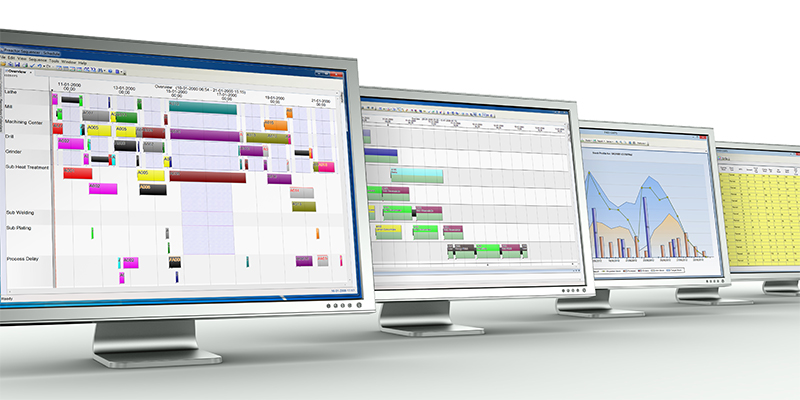Sometimes, in a world of complexity, it’s a good thing to get back to the basics. Let’s take a step back to explain the basics of production scheduling and why it is important. Production scheduling is the process of planning and organizing the production activities within a manufacturing facility or production environment. It involves determining the order and timing of tasks, allocating resources, and establishing timelines to ensure that products are manufactured efficiently and delivered on time to meet customer demands.

What does Production Scheduling entail?
Production scheduling encompasses various activities, such as:
Sequencing of Tasks: Determining the order in which production tasks and operations should be executed to optimize efficiency and minimize downtime.
Resource Allocation: Allocating the necessary resources, such as labor, machines, materials, and tools, to complete production tasks in a timely and cost-effective manner.
Lead Time Management: Managing lead times for each production task, including setup time, processing time, and waiting time, to streamline production flow and reduce overall lead times.
Deadline Management: Ensuring that production tasks are completed within the specified deadlines to meet customer delivery commitments.
Capacity Planning: Balancing production capacity with demand to avoid overloading or underutilizing resources.
Workforce Management: Scheduling the workforce based on production needs and skill requirements.
Why is it important?
Meeting Customer Demands: Efficient scheduling ensures that products are manufactured and delivered on time, helping businesses meet customer demands and maintain high levels of customer satisfaction.
Optimal Resource Utilization: By carefully planning and coordinating production activities, production scheduling ensures that resources are used efficiently, minimizing waste and reducing production costs.
Minimizing Downtime: Effective scheduling helps in reducing downtime by eliminating inefficiencies and optimizing production sequences, leading to continuous and smooth production flow.
Improved Productivity: Proper scheduling enables organizations to produce more output with the same resources, resulting in increased productivity and profitability.
On-Time Delivery: Meeting production schedules allows businesses to adhere to delivery commitments, fostering positive relationships with customers and enhancing the company’s reputation.
Flexibility and Adaptability: Production scheduling allows businesses to respond quickly to changes in demand, supply, or other factors, making the production process more adaptable to dynamic market conditions.
Reduced Inventory Levels: By aligning production with demand, production scheduling helps in maintaining optimal inventory levels, reducing carrying costs and the risk of obsolescence.
Better Decision-Making: Access to well-planned production schedules and real-time data allows management to make informed decisions and allocate resources effectively.
Production scheduling plays a critical role in optimizing production processes, improving operational efficiency, and supporting an organization’s ability to remain competitive in the market. It ensures that resources are used wisely, products are delivered on time, and customer expectations are met, all of which are essential for business success.
For over 20 years, our team of experts have dedicated their professional careers to working with manufacturers to become more efficient in the planning & scheduling of their production processes. In today’s global economy, it is vital for manufacturers to have an edge over their competition in order not just to survive, but to thrive. Companies are constantly searching for ways to become more efficient and be the best in the market. If you’re interested in learning how our team can help you, be sure to Contact Us to start the conversation.
Pingback: What are the 5 Steps to Production Planning? - Lean Scheduling
Pingback: Production scheduling - Lean Scheduling | Produ...
Pingback: Production Scheduling Solutions- Lean Schedulin...
Pingback: Production Scheduling Software - Exploring the Benefits